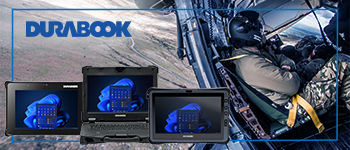Under pressure
Patrick Rea explores how elite military and sports strategies can be used to help transform security performance
The armed forces and high-performance team sports hold valuable lessons for training and managing UK security teams that face ever-changing criminal, public order and terrorist threats. Whether it’s an athlete facing a crucial play or a soldier navigating a hostile warzone, performing under immense pressure is paramount to achieving success. By studying how top performers prepare their people to excel in these demanding situations, security leaders can transform their teams and rise to the challenges they face.
At the heart of every elite team is a leader who sets the tone and drives performance. Leaders in high-stakes military and sports environments understand that true influence stems not from rank or title, but from leading by example. “You must first be able to lead yourself before you can lead other people, holding yourself accountable to the highest standards,” says Jonathan Thomas. He is a former Royal Marine and a partner at Assist Security Group (ASG), where he helps safeguard the corporate headquarters and personnel of premium retail and hospitality businesses.
The most effective leaders work tirelessly behind the scenes to enable others’ success. Dylan Hartley is a former England rugby team captain with an impressive 85 percent win rate and the country’s all-time most capped hooker, he says: “My role as captain was not to be the star player, but to create an environment where every team member could shine”.
Hartley brings his focus on training in the fundamentals, clear communication and fostering extreme ownership to the security sector in his role as a non-executive director and performance lead at ASG. Elite teams recognise that vulnerability and humility are counterintuitively powerful leadership traits, Hartley says. While strength and invincibility are often seen as hallmarks of great leaders, true strength lies in admitting limitations, learning from failures and empowering others.
“Letting everyone know that you’re not perfect and that you need help with certain things, that must be a strongpoint,” he says. This vulnerability forges trust, accountability and shared purpose – the bedrock of high-performance teams.
Elite military and sports teams know that thriving under pressure results not from innate talent, but from rigorous training that simulates the toughest challenges. “Expose the team to stressful situations in training so their default response is high when under real pressure,” Thomas explains.
Special forces and top athletes exemplify this principle of stress inoculation. By facing extreme physical and mental trials, they forge a resilience that enables them to stay focused and composed when it matters most. For security teams, this means creating training scenarios that mirror the intensity and unpredictability of real-world threats, from active assaults to complex coordinated attacks.
But pressure training isn’t just about individual toughness, it’s also about developing a team’s ability to function as a cohesive unit under duress. In the heat of the moment, when adrenaline surges and chaos reigns, team members must rely on their training and trust each other. Hartley says: “Focus on the process and your role, trust your training, look to your teammate, keep moving forward and making decisions to instil confidence”.
A crucial but often overlooked aspect of pressure training is the importance of structured decompression routines. High-performance teams recognise that sustained excellence requires periods of intentional recovery, where individuals can process intense experiences and recharge mentally and physically. For security teams, this may involve regular debriefing sessions, the use of relaxation techniques and team-building activities that foster camaraderie and shared purpose.
While pressure training principles can prepare teams for intense challenges, it is crucial to recognise and address the potential for trauma in the aftermath of critical incidents. Mental health charity PTSD Resolution offers Trauma Awareness Training for Employers (TATE). The workshops equip leaders with the skills to identify when a team member may be struggling to cope following a highly stressful event. They enable line managers to recognise the often subtle changes in behaviour and attitude that may signal the need for support and intervention. Delegates also learn how to open a conversation without embarrassment and to signpost professional help.
PTSD Resolution has a nationwide network of over 200 therapists to help those suffering from post-traumatic stress. The service, which is free for all Armed Forces veterans, ensures that security professionals have access to prompt, local and confidential therapy. This benefits the individual and strengthens the team and the organisation by reducing the risk of burnout, absenteeism and staff turnover.
Thomas says: “ASG has partnered with PTSD Resolution for its TATE support; just as operational machinery is maintained regularly and repaired when necessary, it is rational to take the same approach with your people”. By fostering a culture of openness and responsibility – where seeking help is not seen as a sign of weakness, but as a proactive step towards recovery – security teams can build the resilience needed to deal with new challenges.
In the chaos and complexity of high-stakes operations, top military and sports teams recognise that clarity and focus are the keys to success. Hartley says: “Simplicity is key in captaining rugby – communicate three clear messages each for attack, defence, logistics. Reinforce them constantly”.
This discipline of simplicity stems from the understanding that under pressure the human mind can only process a limited amount of information. By distilling often complex strategies into clear, actionable directives, leaders help their teams cut through the fog of war and execute with precision. For security teams, this involves developing concise, easy-to-remember protocols for responding to specific threats and establishing a shared language for efficient communication in high-stress situations.
Simplicity also involves fostering a culture of ‘extreme ownership’, where every individual takes personal responsibility for their role in the larger mission: “You have to hold yourself accountable to the highest standards automatically, not just when asked,” says Thomas. By internalising this sense of ownership, team members become more proactive, adaptable and focused on the ultimate goal.
The discipline of simplicity demands a relentless focus on mastering the fundamentals. While the world often prioritises the latest technology and equipment, elite performers understand that true excellence comes from perfecting the basics.
Hartley comments, “Be brilliant at the basics, apply discipline relentlessly. As important as they are, technology and equipment are just enablers.” For security teams, this means prioritising foundational skills like risk assessment, situational awareness and tactical proficiency.
Elite military and sports teams know that thriving in high-stakes situations hinges on intelligent preparation. This process starts with a deep understanding of the specific risks and challenges they will face. Thomas stresses: “Upfront investment in understanding the client’s specific risk profile is essential, whether it’s a busy tourist venue like the London Eye or a prestigious corporate HQ like the Arbor building on Bankside, who we work with”.
For security teams, this means conducting thorough risk assessments that go beyond superficial checklist exercises. It requires asking difficult questions, challenging assumptions and anticipating the unexpected. By developing a comprehensive understanding of the threat landscape, security teams can craft strategies tailored to the unique needs of each organisation and situation.
Intelligent preparation is also about building the capacity to adapt and problem-solve on the spot, in real time. Elite teams understand that no plan survives contact with the enemy and that thinking on one’s feet is a critical skill. Hartley advises: “Structure the training for peak performance,” ensuring teams are physically ready and mentally primed to handle any challenge, such as in the lead-up to protecting a major public event.
One of the most powerful tools in intelligent preparation is the after-action review. By taking the time to debrief and analyse each operation systematically, elite teams can identify areas for improvement, share best practices and build a culture of continuous learning. For security teams, this means institutionalising a process of regular, honest feedback and reflection – which is critically important in an industry where complacency can be deadly.
To achieve elite performance, security teams operate at their best within a unified system that focuses on core operational principles, says Thomas, who works with a range of stakeholders including managing agents, business owners, logistics and HR managers. ASG uses a six-point Security Framework to provide a clear approach to agreeing on performance goals and priorities and managing client expectations.
The framework emphasises people, partnership, protection, prevention, presentation and planning; security teams are trained and attuned to each client’s unique risk landscape, company culture and commercial priorities. “Clear communication and understanding ensures a common language and shared set of priorities, so everyone is working together towards the common goal of ensuring safety and security,” says Thomas.
Success results from the seamless integration of leadership strategies and a unified operational framework. Embrace the principles of leading by example, foster resilience through pressure training, prioritise mental health and maintain the discipline of simplicity, Thomas advises.
In this way, security leaders can develop highly skilled teams committed to their mission: “This holistic approach to security leadership is the key to unlocking the full potential of teams and ensuring the safety and success of the organisations we protect”.
Patrick Rea is Trustee and Campaign Director of PTSD Resolution, the Armed Forces Veterans charity that provides mental therapy and also Trauma Awareness Training for Employers (TATE) to the security industry.









